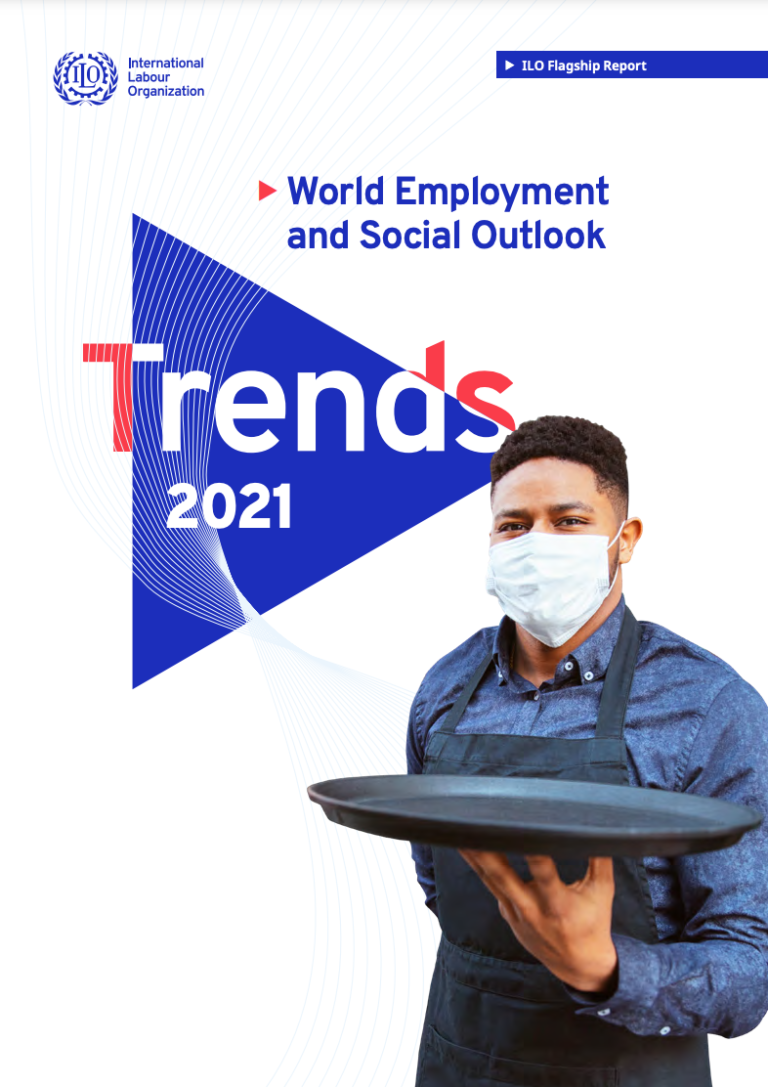Since its emergence in December 2019, it has been very clear that the threat posed by COVID-19 to public health would also be a threat to the world of work. Workplace closures and other measures necessary to curb the spread of the virus have wreaked havoc on enterprises and workers across the world. While signs of economic recovery are appearing as vaccine campaigns are ramped up, the recovery is likely to be uneven and fragile.
Indeed, one of the salient impacts of the COVID-19 crisis has been the worsening of long-standing structural challenges and inequalities in the world of work, undermining recent progress in poverty reduction, gender equality and decent work. The effects of the crisis continue to be highly uneven, with stark differences across countries and among workers depending on where they work, the type of work they do, and the characteristics of their job.
This year’s World Employment and Social Outlook: Trends provides a comprehensive assessment of how the COVID-19 pandemic has affected the world of work. It analyses global patterns, regional differences, and outcomes across economic sectors and groups of workers. The report also presents projections for the expected labour market recovery. The world will emerge from this crisis, but we need to ensure that no one is left behind in the process. To that end, the report concludes with policy recommendations for achieving a broad-based, human-centred recovery.

